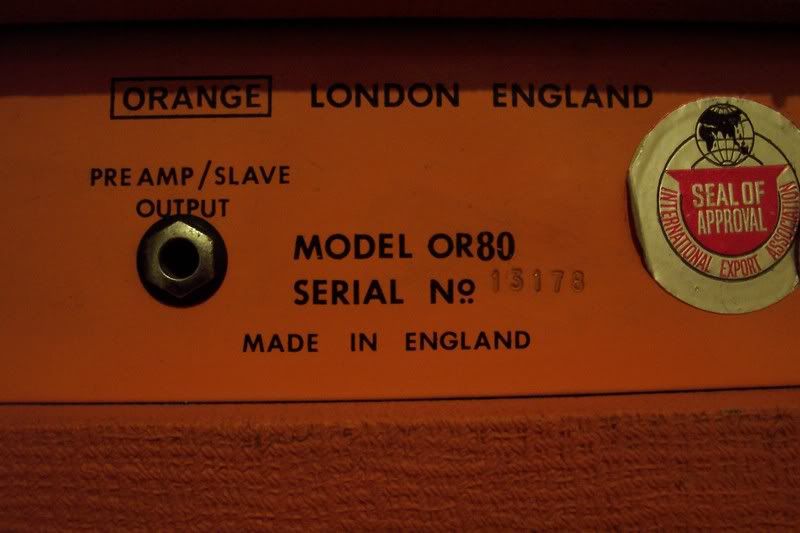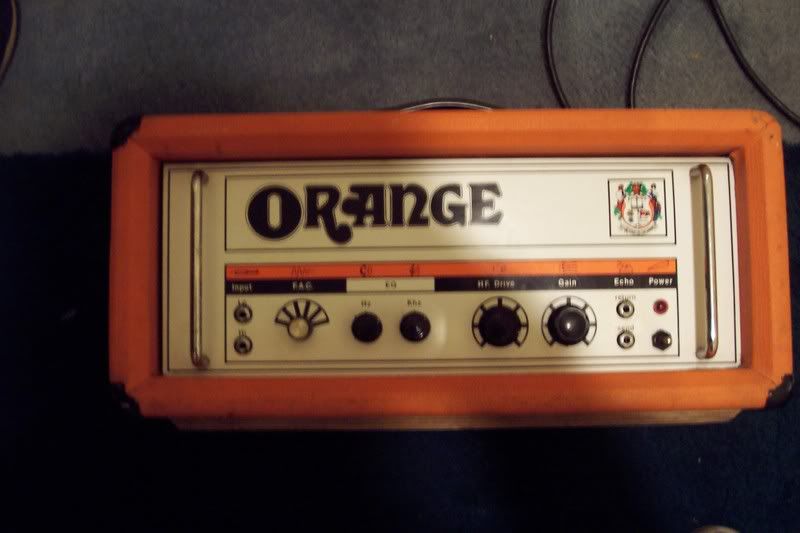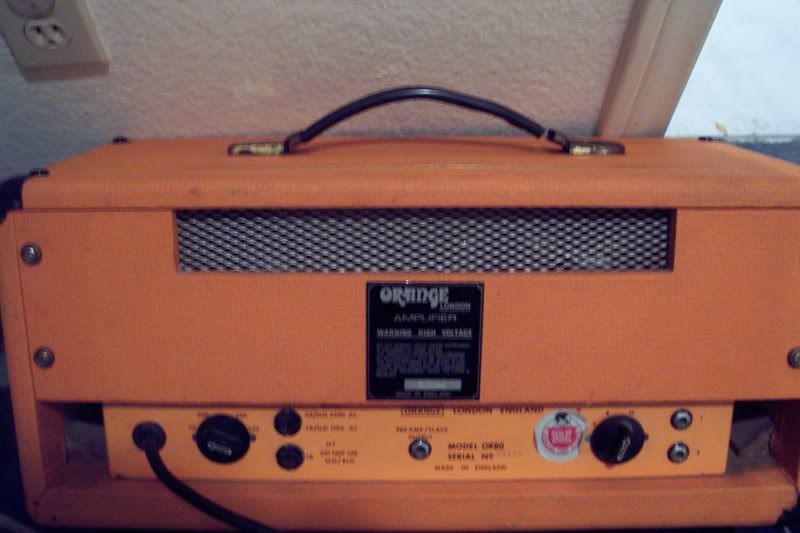Page 1 of 1
Posted: Mon Jan 21, 2008 4:45 am
by aperfectsonnet
i believe this is a 1974 but could be wrong...s/n is 13178
any help dating this would be appreciated.


Posted: Mon Jan 21, 2008 4:48 am
by aperfectsonnet
Posted: Mon Jan 21, 2008 8:51 am
by Andy H.
Hi aperfectsonnet. Welcome to the forum!

From this site
ORANGE TIMELINE it looks to be a 1976 model.
It is just possible that there may be a stamped paper date tag inside the chassis. But since these amps can store very high internal voltages for a long time after being powered down and unplugged from the wall I'd be very careful about opening it up to take a look. Chances are that it would just confirm '76 if there was one though.
Nice amp!

Andy.
Posted: Mon Jan 21, 2008 9:07 am
by aperfectsonnet
Thanks for the welcome and the help...how many hours should i wait to try and see?
Posted: Mon Jan 21, 2008 10:47 am
by Andy H.
<blockquote id="quote"><font size="1" face="Verdana, Arial, Helvetica" id="quote">quote:<hr height="1" noshade id="quote"><i>Originally posted by aperfectsonnet</i>
<br />Thanks for the welcome and the help...how many hours should i wait to try and see?
<hr height="1" noshade id="quote"></font id="quote"></blockquote id="quote">Not worth thinking in terms of hours! The very big filter capacitors can potentially store hundreds of volts DC for days to weeks - easily enough to kill. The only way to be safe working in valve amps is to know how to safely discharge them. (Depending on design this happens automatically within a few minutes in some amps, but not usually in very simple old designs.)
If the amp is new to you I would definitely suggest getting a good tech to check it over anyway for safety and reliability. Those same filter caps have a limited working life and if original would be long overdue for replacement. Especially if being powered up for the first time in a couple of years they have been known to explode filling the amp with nasty corrosive gunk. (I know because it happened to my own tech with one of my own old amps!

)
Also you'd want the biasing of the power valves checked so they are running in the right current range. Just ask them to check for a date tag while they are at it. But as I say the chances are that if there was one it would probably just confirm the year suggested by the timeline.
Andy.
Posted: Mon Jan 21, 2008 10:49 pm
by bclaire
As long as you don't touch anything inside the amp, it's safe to take it out of the chassis and look inside.
Even when you discharge filter caps, they can have a chemical "memory" and the charge will return after a time...
Posted: Tue Jan 22, 2008 1:31 am
by aperfectsonnet
you were right it is in fact a 76...guess that why you are the expert...thanks much!
Posted: Tue Jan 22, 2008 5:55 pm
by Andy H.
<blockquote id="quote"><font size="1" face="Verdana, Arial, Helvetica" id="quote">quote:<hr height="1" noshade id="quote"><i>Originally posted by bclaire</i>
<br />As long as you don't touch anything inside the amp, it's safe to take it out of the chassis and look inside.<hr height="1" noshade id="quote"></font id="quote"></blockquote id="quote">True, but I got myself in trouble for suggesting less not so long back, so I'm always a little reluctant to make that suggestion online.


Yeah, electrolytic caps do have a habit of redeveloping a fair old charge, though nothing like as high as a fully charged one. But anyway if you touch nothing inside you're fine. Just need to be careful there are no kids / animals / unsuspecting others around. And be careful to be careful.
'76 eh...?

(Billy, think its maybe worth linking to the Timeline on your sticky post?)

Andy.






